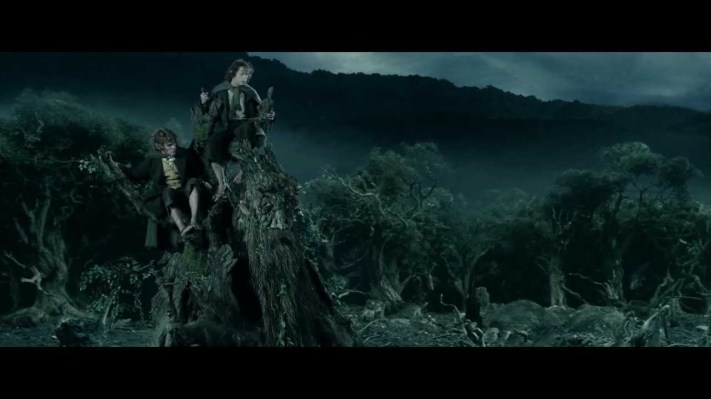One of the saddest scenes in the Lord Of The Rings trilogy is watching the slow-moving Ents – the massive tree shepherds that took days to decide whether or not to react Sauron’s onslaught – are cut down by the wily Orcs. Only a few fall in the battle but when they do the giants of the forests that at first seemed so powerful are exposed to be easily vanquished. They won the battle but we can presume the fallen ones made great kindling for the Orc’s fires.
Yahoo isn’t kindling yet but it – like the mighty AOL Ent on which you’re reading this – has fallen. Mayer’s Old Web property is now part of a phone company, a prospect that would be unfathomable when the first web portals hit the scene.
Think about Yahoo’s mission. Originally a catalog of important things on the web it became what Year 2000 dot-commers called a portal. It was, at its core, a sort of app store with multiple features including chat, weather, mail, and photo storage. It was an early, simple web-based operating system and it was as far away from the backward, boring infrastructure companies that were then trying to figure out a way forward in the online economy.
But infrastructure has one thing going for it: it has revenue, year after year, and that revenue can be used to take down upstarts when they’re weak. That’s exactly what happened here.
Yahoo wasn’t always doomed. It was once, like AOL, a web giant. It still gathers millions of eyeballs and plenty of traffic. But then slowly (then quickly) Google overtook all comers with its superior search and that search revenue helped the company expand away from its core business leading it to create a true app store as well as a truly powerful mobile infrastructure. Yahoo and AOL, for their parts, focused on ad automation and when Facebook ate a piece of that pie they had little left to fight over. The once mighty giants were struck blow after blow and they couldn’t survive.
What is Verizon doing with its relics of Internet Past? Not much. They have been fairly hands-off with AOL (and this site) and their interest, I suspect, is in building a media conglomerate like Disney or Comcast – a set of businesses that report to the mothership and use synergy and shared goals to raise all boats. Whether or not a company like Verizon whose primary expertise is in setting up cell towers can do this is still up in the proverbial air but here’s hoping.
There aren’t many tech giants left. Hardware greats like Xerox, Cisco, and Nokia are moribund. Software houses like Oracle and Microsoft are doing enough to be dangerous and little more. And old-guard websites are basically no more except perhaps Amazon and Drudge. If the 2010s have brought anything it’s been a wholesale cleanout of massive tech brands and the rise of hundreds of orc-like replacements.
The thing that is sadder still is that more giants will fall over the next few years. Gawker is already teetering, about the fall into the ZDNet swamps. Travel stalwarts like Kayak and CheapCaribbean are being replaced by low cost travel apps that reduce the complexity of booking a trip to nil. Advertising companies have been swallowed up one by one until there are only a few left. The only things really left to disrupt are online banking and commodity web hosting and those spaces are deeply entrenched.
Yahoo was the last of the giants. There are plenty of smaller companies still around from the 1990s but they were always scurrying in Yahoo’s shadow. Now the company’s forward facing tools and media services will be folded into Verizon and when Yahoo employees become AOL employees it will be harder to separate out what was Yahoo and what wasn’t. Like the venerable Treebeard, Yahoo will put down roots, grow leaves, and become part of the undifferentiated forest. It was sad but expected.
